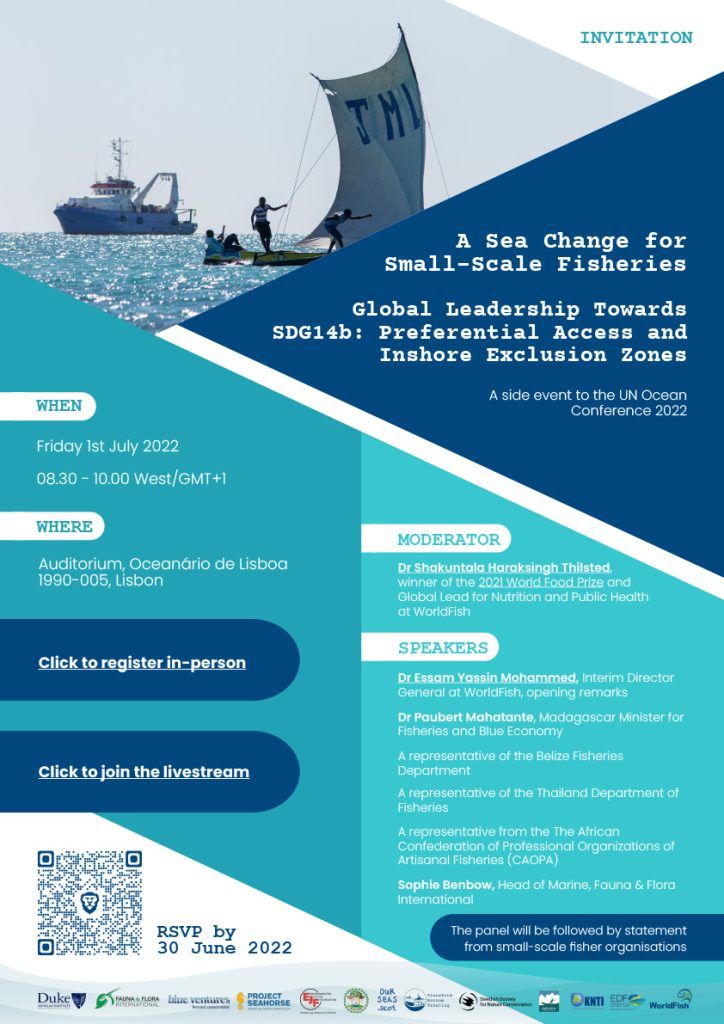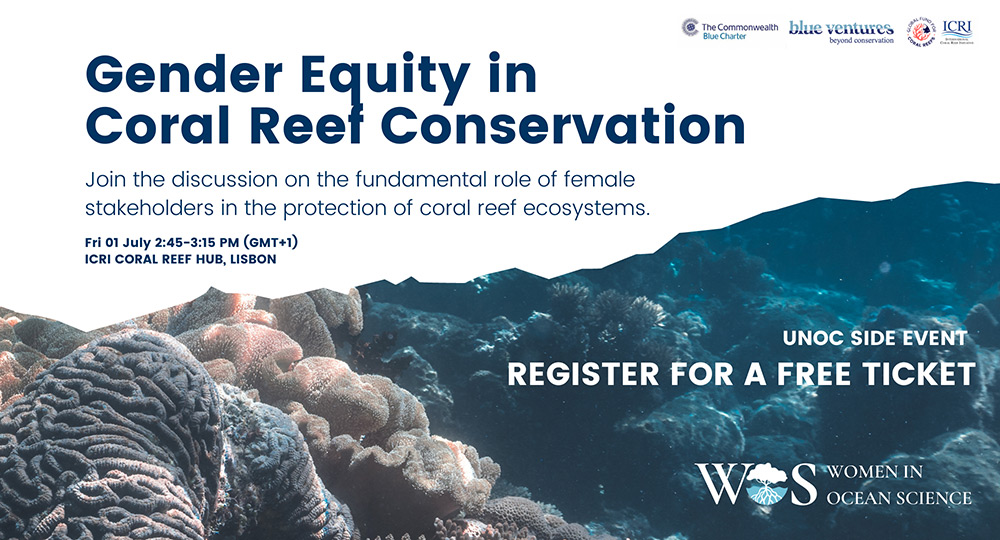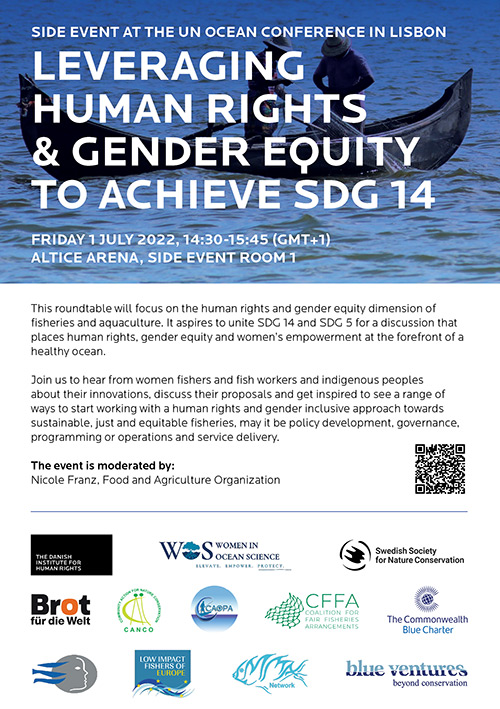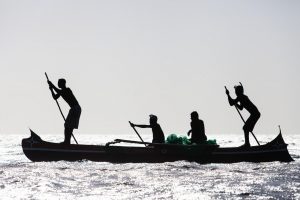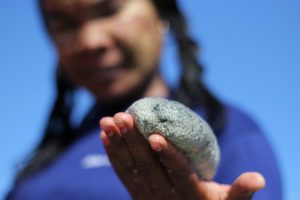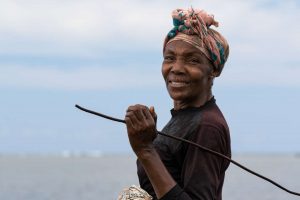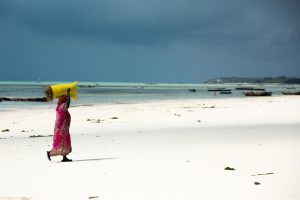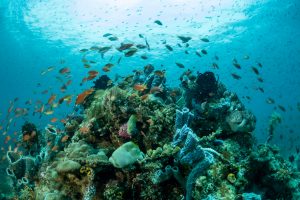
UNOC

The UN Ocean Conference 2022
In Lisbon, Portugal from 27 June – 1 July 2022 the Governments of Kenya and Portugal will co-host the Ocean Conference.
Scaling up Ocean Action Based on Science and Innovation for the Implementation of Goal 14: Stocktaking, Partnerships and Solutions
The aim of the conference is to mobilize action and to seek to propel much needed science-based innovative solutions aimed at starting a new chapter of global ocean action. Solutions for a sustainably managed ocean include addressing the threats to health, ecology, economy and governance of the ocean – acidification, marine litter and pollution, illegal, unreported and unregulated fishing, and the loss of habitats and biodiversity
Blue Ventures will be co-hosting the following events:
Tuesday 28th June from 8:30 to 9.30 - Tejo Restaurant of the Oceanário de Lisboa 1990-005, Lisbon
A call to Action from artisanal fishing communities, vital users of the oceans
This event will be a knowledge sharing breakfast meeting to present small scale fisheries perspectives on ocean challenges, share examples of best practice in governance and securing preferential access to resources and markets. A call for action from artisanal fishing communities will be launched, and will serve as a basis to explore strategies for addressing SSF priorities for change.
Wednesday 29th June from 8 to 10am - Tejo restaurant of the Oceanário de Lisboa 1990-005, Lisbon
Dialogues for marine conservation and artisanal small-scale fisheries: A vision from artisanal small scale fisheries, seeking equity, social justice, sustainability and peace
This event will amplify the voices of artisanal small-scale fishers in territories of life that allows them to express their vision concerning marine conservation and responsible artisanal fishing.
Friday 1st July from 8.30 to 10am - Auditorium, Oceanário de Lisboa 1990-005, Lisbon
A Sea Change for Small-Scale Fisheries - Global Leadership Towards SDG14b: Preferential Access and Inshore Exclusion Zones
The Transform Bottom Trawling Coalition is hosting an official side event at the UN Oceans Conference. The event will explore the role of inshore exclusion zones free from industrial fisheries and preferential access areas for small-scale fisheries in safeguarding livelihoods and ecosystems.
Blue Ventures is also partnering with other organisations on the following events:
Monday 27 June 2022 from 11:30-12:45 - Side Event Room 1
Small in scale, big in value: Stocktaking, partnerships and solutions in support of small-scale fisheries [A IYAFA 2022 event]
An inspiring journey across regions to inform deliberations on SDG 14.b on the occasion of the International Year of Artisanal Fisheries and Aquaculture 2022 as a major milestone to achieving this SDG.
Contact:
[email protected]
Organizers: Peru, FAO, Sweden, Norway. Members of the International Year of Artisanal Fisheries and Aquaculture (IYAFA) 2022 International Steering Committee (ISC): Indonesia – Ministry of Marine Affairs and Fisheries, Senegal – Ministry of Fisheries and Maritime Economy, Tanzania – Ministry of Livestock and Fisheries, International Collective in Support of Fishworkers (ICSF), IPC Fisheries Working Group. Official IYAFA 2022 supporters: Abalobi, African Confederation of Artisanal Fisheries Professional Organisations (CAOPA), Blue Ventures, Canari, China Blue, Comunidad y Biodiversidad (COBI), Community Conservation Research Network (Canada), Global Action Network-Sustainable Food from the Oceans and Inland Waters for Food Security and Nutrition (GAN), General Fisheries Commission for the Mediterranean (GFCM), German Agency for International Cooperation (GIZ), Gulf Caribbean Fisheries Institute (GCFI), International Institute for Environment and Development (IIED), International Pole and Line Foundation, Ocean Outcomes, One Ocean Hub, Sustainable Fisheries Initiative (SFI), University of the West Indies – Centre for Resource Management and Environmental Studies (CERMES)
Thursday 30 June 13:00-14:15 - Committee Room
Blue Carbon: Charting the Path for Governance and Partnerships
As solution to climate change while also generating co-benefits, blue carbon requires governance and partnerships to ensure credible projects with sustainable and equitable best practice principles.
Organizers: Lead Organizations and Partners: 1. Australian Government Department of Foreign Affairs and Trade: The International Partnership for Blue Carbon, including partners: UK Department for Environment, Food & Rural Affairs (Defra), Scottish Blue Carbon Forum, International Union for Conservation of Nature (IUCN), Australian Department of Agriculture, Water and the Environment, Intergovernmental Oceanographic Commission (IOC) of UNESCO, Secretariat of the Convention on Wetlands (Ramsar), Rare, Centre for International Forestry Research (CIFOR), US National Oceanic and Atmospheric Administration (NOAA), Blue Ventures, CATIE 2. Coordinating Ministry for Maritime Affairs and Investment of The Republic of Indonesia and Indonesia Ocean Justice Initiative (IOJI) 3. World Economic Forum (Friends of Ocean Action): Karen Demavivas, Lead, Friends of Ocean Action, World Economic Forum, Whitney Johnston, Director of Ocean Sustainability, Salesforce; Jennifer Howard, Senior Director, Blue Carbon Programme, Conservation International; Karen Sack, Executive Director & Co-Chair, ORRAA; Emily Landis, Climate and Ocean Lead, TNC; John Ehrmann, Senior Partner, The Meridian Institute; Douglas McCauley, Benioff Ocean Initiative 4. Government of Commonwealth of The Bahamas: Beneath The Waves, Oceans2050, Sea Legacy and International Monetary Fund.
Friday 1 July 2022 13:00-14:15 - Side Event Room 2
It’s all about people: Building inclusive leadership and cross-sectoral collaboration for a thriving ocean
A sustainable ocean demands new thinking, learning from the past, promoting leaders and unprecedented collaboration. Explore best practices worldwide, help us shift mindsets and amplify impact.
Contact:
[email protected]
Organizers: UNESCO, Edinburgh University – Edinburgh Ocean Leaders, Planeta Océano, Australian Association for Environmental Education (AAEE), Biosfera 1, Blue Ventures CoopeSoliDar R.L, Early Career Ocean Professional Programme (ECOP), International Pacific Marine Educators Network (IPMEN), GRID-Arendal, I AM WATER, IUCN – International Union for Conservation of Nature, Locally Managed Marine Area Network International, Marine Conservation Action Fund (MCAF) of the New England Aquarium, Maritime Archaeology Trust, MigraMar, Misión Tiburón, Mission Blue, National Museum of Kenya, Nausicaá – National Sea Center, Ocean Decade Heritage Network, Ocean Knowledge Action Network (KAN), Ocean Policy Research Institute of the Sasakawa Peace Foundation (OPRI-SPF), Panama – Ministry of the Environment, Prince Albert II of Monaco Foundation, Qingdao Marine Conservation Society, SciDipGLOBAL, SpeSeas, Surfers Against Sewage, The Centre for the Ocean and the Arctic at UiT The Arctic University of Norway, The Ocean Foundation, The Pacific Community (SPC), Universidade Federal de São Paulo, Universidade Nuova de Lisboa, University of South Florida – College of Marine Science, Upwell
Friday 1 July 2022 14:45-15:15 - Side Event Room
Supporting women is protecting coral reefs: join this female-led panel event at the Coral Reef Hub
The Gender Equity in Coral Reef Conservation panel discussion brings together four female stakeholders from reef communities across the globe to share perspectives on the fundamental role of women in the protection and longevity of these tropical ecosystems and the communities they support.
Speakers:
- Karen Panton – Executive Director, Bahamas Protected Fund
- Suzanne Rita Njeri – Vice President, AWFISHNET
- Jovelyn Cleofe – Coordinator, LMMA Philippines
- Madeline St Clair – Managing Director, Women in Ocean Science (Moderator)
Supporting women is protecting coral reefs: this female-led discussion will cover topics ranging from local community environmental stewardship to increasing the visibility of women in maritime careers. Hosted by Women in Ocean Science.
How To Find Us:
We’ll be located across the street from the official UN Ocean Conference location (the Altice Arena) on the first floor (with accessibility by elevator) of the PT Meeting Center. Reef Action Hub, Sala 2, R. do Bojador 47, 1990-254 Lisbon
UNOC Accreditation Not Required
As the Reef Action Hub is not an official UN Ocean Conference (UNOC) site, attendees to any events held in the Reef Action Hub are not required to be accredited or registered for the UNOC.
About Women in Ocean Science
Women in Ocean Science C.I.C. is a non-profit organisation that tackles gendered issues in marine science and conservation to empower women to thrive in ocean-related careers. This year WOS aims to bring female and underrepresented voices to the forefront of the ocean conversation. Learn more: womeninoceanscience.com/
About The Reef Action Hub
From 27th June through 1st July, on the side-lines of the UN Ocean Conference, the GFCR and the International Coral Reef Initiative (ICRI) will host the ‘Reef Action Hub’. The Hub will feature coral-focused side events, including workshops and roundtable meetings, aiming to accelerate action for coral reefs and showcase solutions.
Friday 1 July 2022 14:30-15:45 - Altice Arena, Side Event Room 1
Leveraging Human Rights & Gender Equity To Achieve SDG 14
The roundtable will discuss the human rights and gender equity dimension of fisheries and aquaculture governance, and devise strategies to enhance sustainability of the sector, while simultaneously enhancing the development and dignity of fishing-dependent communities. Speakers will address the potential to work towards achieving SDG 14 in ways that bring multiple development benefits and enable progress in achieving other SDGs.
Main organizers: Danish Institute for Human Rights, Swedish Society for Nature Conservation (SSNC), Women in Ocean Science, The Commonwealth Blue Charter
Co-organisers: COAST Foundation, The African Confederation of Professional Artisanal Fisheries Organisations (CAOPA), Coalition for Fair Fisheries
Arrangements (CFFA), Bread for the World, Community Action for Nature Conservation (CANCO), LMMA network, Low Impact Fishers of Europe (LIFE) and AKTEA, Blue Ventures, the Food and Agriculture Organization, and the Government of Sweden.

